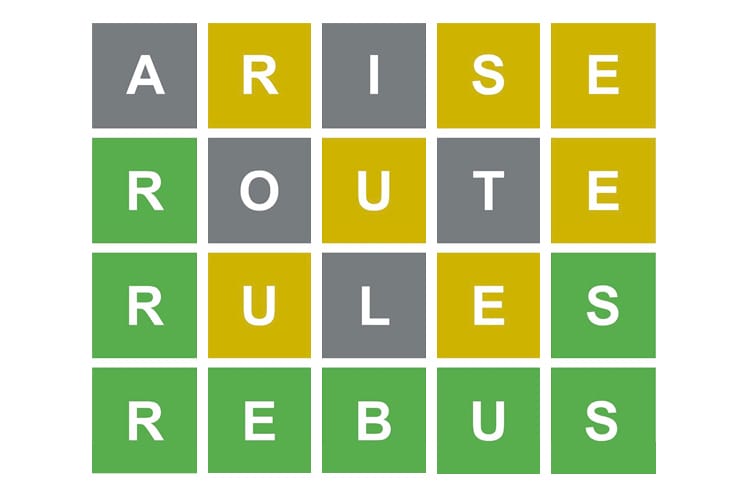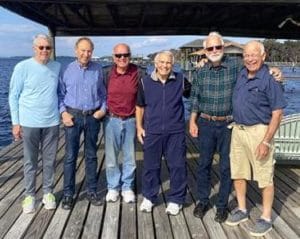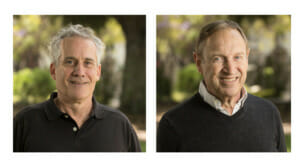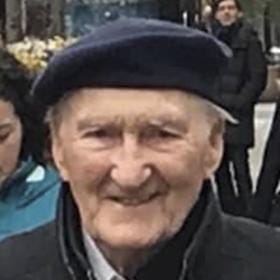Obsessed with Wordle? Our User Ex Expert Explains Why It’s Hard to Resist

The Latest News from the Division of Behavioral & Organizational Sciences
Do you look forward to spending ten minutes—or probably more—every day trying to solve for a single five-letter word?
If you do, you’re a part of the phenomenon of Wordle, the web-based word-guessing game that has become wildly popular—despite no advertising and a no-frills website—since its appearance last fall.
A recent Shaping Design piece on the game featured the perspective of Danielle Green, an assistant professor of practice in the university’s Division of Behavioral & Organizational Science.
Green teaches in the master’s program in Applied Cognitive Psychology: User Experience, which shows students how the principles of good design start with an understanding of the relationship between psychology and technology.
For Green, the reason for Wordle’s runaway success—along with its shareability and positive feedback loops—is the ease of its user interface (UI).
“From a cognitive perspective, puzzle games are always riding that line between fun and frustrating,” Green explained. “Having a simple UI with a low barrier to entry and a shallow learning curve means that your brain gets to spend its effort on the task at hand, which is the actual game, rather than figuring out the UI. People have really responded to this approachability,” she explains.
- Read more of Green’s comments and learn more about the User Experience program at CGU.

Saying Goodbye to an Old Friend: Professor William Crano was featured in a bittersweet story published by Princeton Alumni Weekly about a group of former college football teammates who traveled to Florida to visit Jim Rockenbach. One of their group, Rockenbach was diagnosed with aplastic anemia and given just two months to live by his doctors.
It is a moving account of how the friends have stayed in touch over the years and how they turned a sad occasion into a moment to celebrate their lasting friendships.
The good, they say, often coincides with the tragic, and that was certainly true of this trip. As everyone had a chance to share old memories and say goodbye to Rockenbach, Crano—who is Oskamp Chair and Distinguished Professor in Psychology at CGU—was also informed that he’d been chosen along with a CGU colleague for awards from the Society for Personality and Social Psychology.
That’s the subject of the next news brief.
- Read more about this moving reunion among friends

Top honors: Two award recipients at this year’s Society for Personality and Social Psychology (SPSP) annual convention are:
Michael Hogg, professor of social psychology and chair of CGU’s social psychology programs: Hogg is the recipient of this year’s Campbell Award, which recognizes distinguished scholarly achievement and sustained excellence in research in social psychology. This award is intended to recognize rigorous research over one’s career rather than one specific discovery or publication.
William Crano is the recipient of the Distinguished Scientific Contribution Award, which honors psychologists who have made significant theoretical and empirical contributions to the understanding of attitudes, persuasion, and social influence.
- Learn more about the SPSP

In Memoriam: Phillip Van Eyl served as a longtime psychology faculty member at Michigan’s Hope College. He passed away last summer at the age of 93.
Born in 1928 in Haarlem, the Netherlands, Van Eyl was a part of the Dutch Resistance during World War II and immigrated to the United States in 1949, where he served in the U.S. military and became a U.S. citizen. He attended Hope College before moving with his wife, Miriam, to California and studying at CGU (then known as Claremont Graduate School) and receiving a master’s and a doctorate in experimental psychology.
Van Eyl later returned to Hope College to begin his teaching career, and, over 33 years, he founded and developed the institution’s emerging psychology department.
- Read more about Van Eyl’s life.